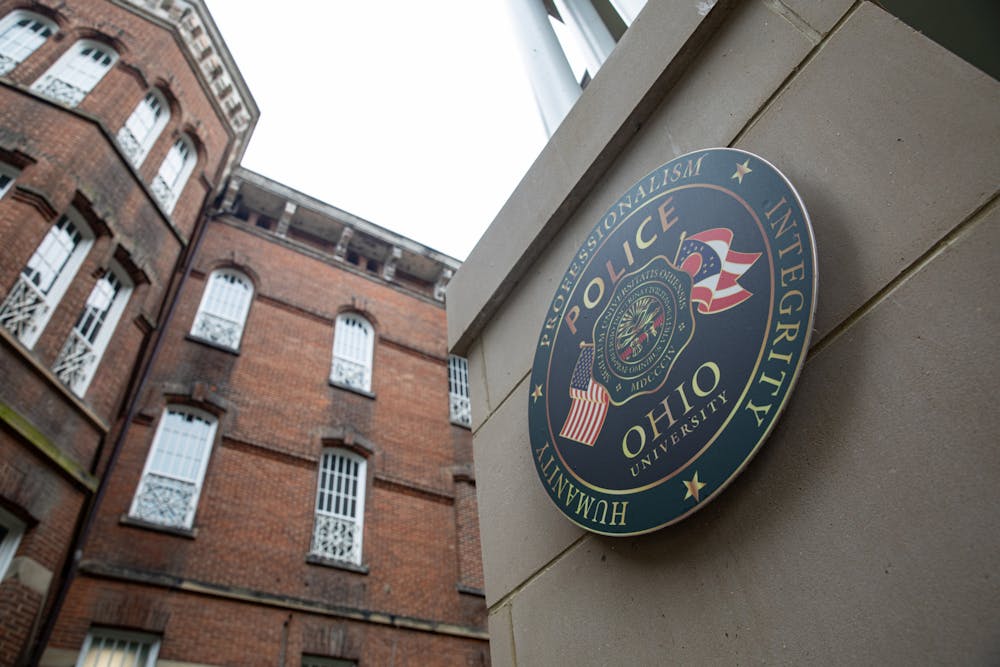Clarification appended.
Both the Athens Police Department and the Ohio University Police Department are seeking new hires due to vacancies in the respective departments.
APD is currently looking to fill three vacant spots in its department. OUPD told The Post it does not advertise the number of vacant positions within the department.
Applications for public safety have been down for several years, leaving openings at many departments, including fire safety, EMS and law enforcement, said APD Police Chief Tom Pyle.
"We think we are seeing the effects of the labor shortage that is present throughout much of the country right now, largely due to factors related to the pandemic and the economy," OUPD Staff Lieutenant Tim Ryan said in an email.
When APD put out previous application advertisements, 70-80 individuals would apply, Pyle said. Currently, it has received around 20 applications, which is typical with most agencies the size of APD unless they are one of the state's higher-paying workplaces, Pyle said.
Vacancies within the department result in less police coverage. Most departments with around 30 employees should have an average of five people per shift, but APD is currently operating at three, Pyle said. This translates to fewer traffic stops and fewer police officers on patrol at a given time.
"People don't really like to be cops anymore," Athens County Sheriff Rodney Smith said. "We really struggle to get good people to come here."
Though staffing is not at a desirable level, it does not affect APD and OUPD response times. It will take the same amount of time for two or three officers to arrive at a call as it would for the full five, Pyle said.
"I would rather the city of Athens have fewer and fewer police officers versus hiring the wrong people to fill those positions because … one bad cop does incredible damage to an organization and to (the) reputation of an agency," Pyle said.
APD and OUPD require a background check and physical fitness test for their respective applicants.
Typically, the process includes an entrance exam, containing at least one written exam and one physical exam, Pyle said. At APD, after receiving the list of candidates who pass those examinations, a background interview and a panel interview are conducted to determine the candidate's suitability.
Following the panel interview, candidates participate in a final interview with the chief of police, community members and the service-safety director. Candidates are then trained, which can take between six to 12 months.
At OUPD, applicants must be 21, own a driver's license and have a high school education.
OUPD's applicants participate in 10 to 12 weeks of field training, which includes learning more about being a police officer, the department itself, the community and officer expectations, Ryan said.
"A police officer has to maintain the public trust and a big part of the background (check) is making sure that we are putting our trust in the right people to do that," Ryan said.
OUPD operates out of Ohio University's Athens campus, but OUPD's officers have jurisdiction on regional campuses as well. Depending on the jurisdiction, officers experience different types of crime.
The most common calls OUPD receives are alcohol, thefts and damage to property, Ryan said. At APD, the most common types of complaints are theft, vandalism, noise complaints and alcohol consumption-related offenses, Pyle said.
OUPD and APD often work together in the city of Athens to patrol events like basketball games and fests.
"It's just working together to make sure that we can keep the community as safe as we can," Ryan said.
Call (740) 593-6606 for more information about how to apply for a position at APD. OUPD plans on leaving its application open under OU's job website.
At APD, the starting rate for an officer is around $26.16 an hour. Shifts are 10-12 hours, depending on the position, with every other weekend off, Pyle said.
OUPD advertises a $5,000 sign-on bonus, and its top pay is $35.12 an hour, Ryan said. More information can be found on OUPD's recruitment page.
Clarification appended: In a previous version of this article, OUPD Staff Lieutenant Tim Ryan said that "The most common calls OUPD receives are alcohol complaints and cases of sexual assault,“ when he meant to say “The most common calls OUPD receives are alcohol, thefts and damage to property."






